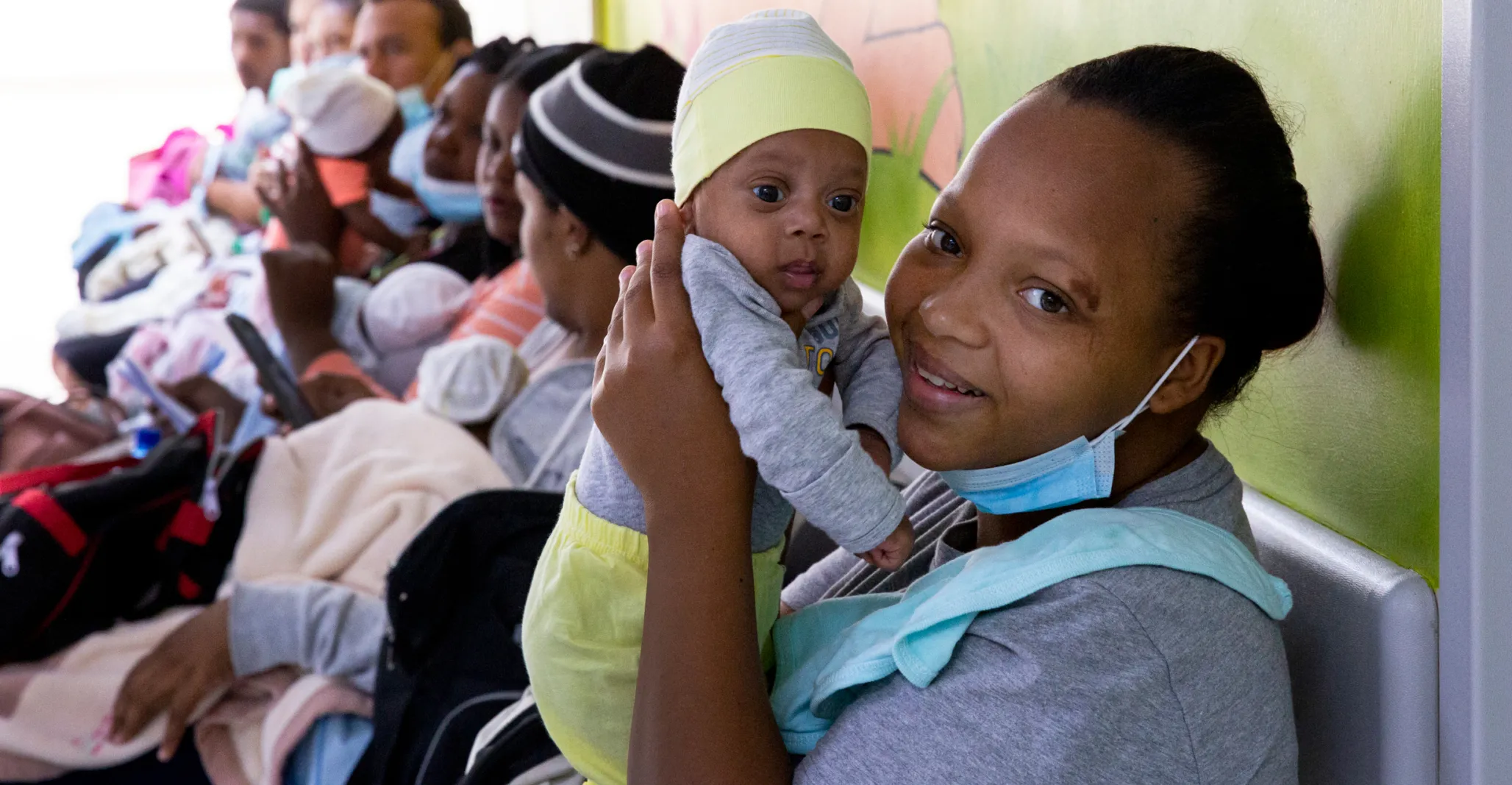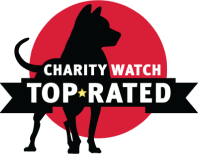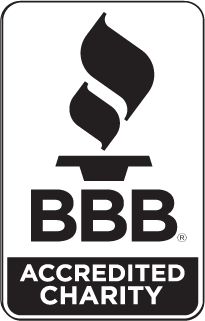

Dominican Republic
Reducing maternal and neonatal mortality, addressing adolescent health, and supporting emergency preparedness and response
The Context
Nearly 1 in 4 people are living below the poverty line in the Dominican Republic and while health indicators have steadily improved over the past few decades, significant inequities remain — especially for the country’s women, children, adolescents, and migrants. The country has one of the highest neonatal mortality rates in the region, and maternal mortality is on the rise. Additionally, the country is home to the highest adolescent pregnancy rates in the region.
Given its borders with Haiti, the Dominican Republic is home to around half a million migrants – most of whom are largely underserved and face stigma and barriers to accessing health and social services.
The Dominican Republic continues to be extremely vulnerable to natural disasters, particularly to hurricanes and flooding, making emergency preparedness and response critical priorities.
For over 25 years, Project HOPE has worked to improve maternal and child health in the Dominican Republic, training thousands of local health workers and providing direct medical support in hospitals and clinics.
Our Impact
Reproductive, Maternal, Newborn, and Child Health (RMNCH)
Project HOPE works to reduce incidence of maternal and neonatal mortality by improving the quality of care and strengthening capacity at leading maternity hospitals and by increasing access to prenatal and postnatal care at the primary care level. Primary program activities include training health workers in maternal and neonatal protocols and best practices such as Helping Babies Breath and Helping Mothers Survive, as well as procuring and distributing critical medicines and medical supplies and equipment. Project HOPE has also partnered with domestic and international medical universities, Servicio Nacional de Salud (SNS), and the Ministry of Health to establish certificate programs for medical professionals working in RMNCH. In 2023, Project HOPE launched a partnership with the Autonomous University of Santo Domingo (UASD) and the University of Chile to develop and implement a certificate program for primary care nurses to increase access to RMNCH at the primary care facilities. To fill the nationwide gap in the availability of biomedical technicians, in alliance with INTEC, Project HOPE is also developing a course focused on corrective and preventive maintenance of maternal and neonatal equipment to ensure life-saving equipment remains operational.

Increasing Access to Health Services and Education for Adolescents
Project HOPE works to increase access to reproductive health and family planning services for adolescents in the Dominican Republic. We strengthen the capacity of primary care facilities to provide adolescent-friendly health services, including family planning methods, while also working at the community level to provide evidence-based reproductive health education and support youth to make informed choices about their lives.
Project HOPE has been working in adolescent health since 2014 when it joined a consortium of partners to implement the USAID-funded “Alerta Joven” program for at-risk youth to create a support network for at-risk youth ages 11-24 in the impoverished community of Herrera in Santo Domingo West. The program worked to address adverse health outcomes affecting youth and young adults in the community, including HIV/AIDS and teen pregnancy, through heath education and preventative care while encouraging educational achievement and providing legal advice and technical training. Through the program, Project HOPE reached more than 2,300 youth with health services and workshops about HIV/AIDS, STDs, and pregnancy prevention.
Responding to Urgent Migrant Health Needs
In October 2023, Project HOPE conducted a qualitative assessment in the Santo Domingo, La Vega, Mao, and Higüey provinces to better understand the barriers and factors that influence health access and utilization among migrant women of reproductive age. Project HOPE is now positioning to respond to some of the most pressing needs identified, including but not limited to, strengthening the capacity of health workers to provide culturally appropriate and compassionate health care, increasing the utilization of health and nutrition services among migrants, and strengthening service linkages and health education on the prevention and treatment of HIV.

Reducing the Burden of HIV/AIDS
Project HOPE has integrated activities aiming to prevent, screen, detect, and increase access to treatment for HIV/AIDS through its RMNCH programming at the health facility level. In 2003, we and our partners implemented the CONNECTA HIV/AIDS prevention program in two primary care clinics in Herrera and Monte Plata to prevent the vertical transmission of HIV, provide testing and treatment referrals, and increase access to free and low-cost health services. These activities remain programmatic priorities of Project HOPE in the Dominican Republic.
Emergency Preparedness and Response
Project HOPE most recently responded to Hurricane Fiona in 2022 and continues to work with affected communities to improve access to clean water sources and provide critical training to prepare for future emergencies. After Hurricane Fiona in, Project HOPE activated and benefited multiple communities in the Northeast of the island with the provision of mosquito nets, medicines and vaccines. In parallel, our Emergency Response team carried out an assessment where multiple communities with water supply needs were identified. This is how the Recovery Phase from the ER Hurricane Fiona was born.
Project HOPE led trainings on the topics of Emergency Preparedness and Use of Water in Cases of Emergency aiming the community leaders, meanwhile, eighteen primary health care centers, two Civil Defense operations, five public schools and three communities were benefited with water solutions in Samana, María Trinidad Sánchez, El Seibo and La Altagracia Provinces. From rainwater collection systems with chlorinators in Miches to the construction of pumping plants, cistern with the addition of solar panels to minimize operative cost in the Community of La Capilla in Cabrera, with the uncertainty of climate change, it is increasingly necessary to include projects able to create awareness and resilience in the community about climate change and to implement new strategies to reduce the needs to access reliable sources of water for primary care centers, schools, institutions and communities.
Our History in the Dominican Republic
Project HOPE began working in the Dominican Republic in 1996 aiming to increase access to affordable, quality care for women, newborns, and children in underserved communities. Since its foundation, Project HOPE has played a pivotal role in the Dominican Republic in coordination with national and local health authorities, domestic and international medical universities, and other key stakeholders, including the American and Dominican Associations of the Order of Malta and the Ministry of Health (SESPAS).
We have maintained a leadership role in maternal, neonatal, child and adolescent health, including establishing the first sustainable maternal-child clinic and winning best practice recognition from the Pan-American Health Organization, the National Commission for Breastfeeding, and the National Immunization Program, as well as an Order of Merit award from the Dominican government.
Over the past two decades, we have donated millions of dollars’ worth of vaccines, medicines, and pharmaceutical supplies to the Ministry of Health, which have been distributed to health facilities across the country.
While improving maternal, newborn, and child health remains the central focus of our work in the country, we have also led community outreach on HIV/AIDS and the Zika virus. During the COVID-19 pandemic, with support from partners, Project HOPE distributed personal protective equipment, provided virtual trainings, and ramped up contact tracing to support local health workers.








